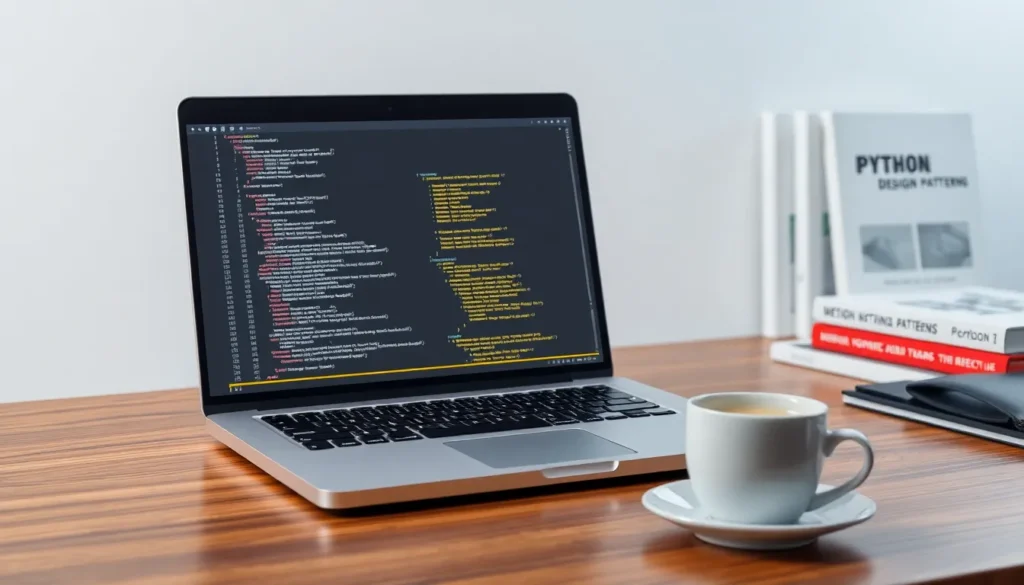In a world where technology reigns supreme, Python developers are the wizards behind the curtain, conjuring up everything from sleek websites to complex data analysis. If you’ve ever wondered how your favorite apps function seamlessly or how businesses make sense of mountains of data, look no further than these coding maestros. With their trusty Python spellbook in hand, they’re turning coffee into code and transforming ideas into reality.
But wait, what exactly does it take to be a Python developer? Is it just endless lines of code and a penchant for debugging? Not quite! It’s a blend of creativity, problem-solving, and just a dash of caffeine. Whether they’re crafting algorithms or automating mundane tasks, Python developers are the unsung heroes of the tech world, making life easier one line of code at a time.
Table of Contents
ToggleOverview of Python Development
Python development encompasses a range of activities focused on using Python programming language for various applications. It serves different sectors, including web development, data analysis, artificial intelligence, and automation. Python developers create software solutions that increase efficiency and enhance user experience.
They often leverage frameworks and libraries such as Django, Flask, Pandas, and NumPy to streamline their work. These tools allow for rapid development, reducing the time necessary to build robust applications. Developers who master these resources possess a significant advantage in delivering high-quality products.
Understanding requirements from clients or stakeholders is essential for Python developers. By gathering detailed specifications, they design solutions tailored to specific needs. Communication skills play a pivotal role in collaborating with teams, ensuring that projects align with business objectives.
Best practices in Python development include writing clean, readable code and implementing version control. Following these practices fosters collaboration and simplifies project management throughout the software development lifecycle. Continuous learning and adoption of new technologies are vital for staying ahead in a fast-evolving industry.
Python’s versatility makes it a preferred language for many organizations. Whether it’s creating web applications that handle thousands of requests or developing data-driven projects, Python remains a go-to choice. The demand for skilled Python developers continues to rise, reflecting the language’s growing popularity in both existing and emerging fields.
Key Skills of a Python Developer

Python developers require a diverse skill set to excel in their roles, leveraging both technical expertise and problem-solving abilities.
Programming Languages
Python forms the foundation for a Python developer’s skill set. Familiarity with other programming languages enhances their capabilities. Many developers benefit from knowledge of JavaScript, which aids in web development tasks. Additionally, C++ and Java experience can be advantageous for those delving into performance-critical applications. Understanding SQL complements data manipulation and database interactions. Mastery of these languages broadens a developer’s proficiency across various platforms.
Frameworks and Libraries
Proficiency in frameworks and libraries significantly boosts a Python developer’s efficiency. Django stands out for web applications, offering robust features for rapid development. Flask serves as a lightweight alternative, perfect for smaller projects or microservices. Data manipulation and analysis rely on libraries like Pandas and NumPy, streamlining the process of handling large datasets. Knowledge of TensorFlow or PyTorch benefits those working in machine learning and artificial intelligence. Familiarity with these tools enhances a developer’s ability to deliver tailored solutions quickly and effectively.
Importance of Python in Today’s Industry
Python’s significance in the tech industry continues to grow, showcasing its versatility in various sectors. Developers use Python for tasks ranging from web development to data analysis and automation, making it indispensable. Many organizations rely on frameworks such as Django and Flask to create robust web applications, enhancing user experience significantly.
Data manipulation benefits from libraries like Pandas and NumPy, which simplify complex analysis processes. Machine learning and artificial intelligence ventures increasingly leverage tools like TensorFlow and PyTorch, allowing developers to implement sophisticated solutions quickly. Companies recognize that hiring skilled Python developers contributes directly to their innovation and efficiency.
Communication skills matter for Python developers since understanding client requirements plays a crucial role in solution customization. Clean coding practices, along with version control, facilitate collaboration among team members, optimizing project management. The rise in demand for Python expertise reflects not only the language’s popularity but also its role in shaping the future of technology.
Organizations value developers who possess a diverse skill set, including knowledge of programming languages like JavaScript and C++. Understanding multiple frameworks and libraries enables developers to tackle performance-critical applications effectively. As industries continue to evolve digitally, the importance of Python developers becomes even more pronounced, driving progress across myriad fields.
Career Path of a Python Developer
The career path for a Python developer includes various stages with ample opportunities for growth. Entry-level positions often serve as a stepping stone into the dynamic tech industry.
Entry-Level Opportunities
Entry-level Python developers typically start in roles such as junior developer or software engineer intern. These positions allow individuals to work on simple coding tasks, bug fixing, and testing. Exposure to frameworks like Flask or Django gives early-career developers practical experience. Many companies prefer applicants with a solid understanding of Python and basic knowledge of version control systems like Git. Gaining familiarity with libraries such as Pandas or NumPy can also be advantageous. Networking through coding boot camps or tech meetups often opens up job opportunities.
Advancing Your Career
Advancement in a Python developer’s career typically leads to mid-level positions like software developer or data engineer. They can transition into specialized roles, such as machine learning engineer or backend developer, by mastering tools like TensorFlow or PyTorch. Continuing education through online courses or certifications enhances skills further. Collaboration on larger projects helps build essential teamwork and communication abilities. As they accumulate experience, developers may take on team lead roles or project management. Developers focused on specific industries, such as finance or healthcare, often find niche roles that offer high demand and competitive salaries.
The role of a Python developer is pivotal in today’s tech landscape. Their ability to blend creativity with technical skills allows them to tackle complex challenges across various industries. As the demand for Python expertise continues to rise, these professionals play a significant part in driving innovation and efficiency.
With a diverse skill set and knowledge of essential frameworks, Python developers are well-equipped to meet the evolving needs of businesses. Their contributions not only enhance user experiences but also pave the way for advancements in fields like artificial intelligence and data analysis. As industries embrace digital transformation, the impact of skilled Python developers will undoubtedly grow, making them invaluable assets to any organization.










